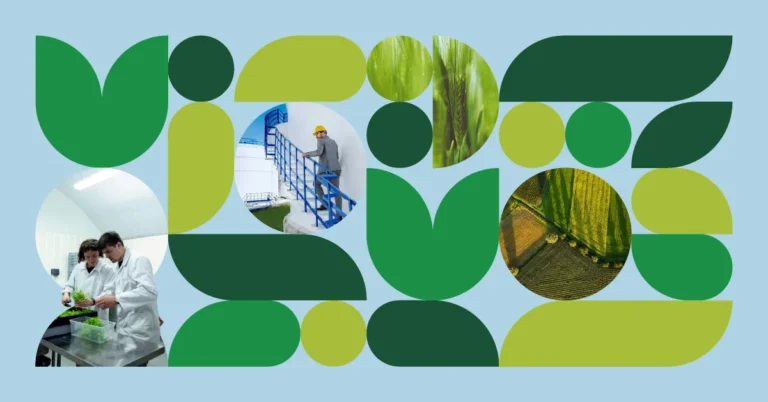The following article by Monika Vilkelytė, the Head of GBS and ICT Team at Invest Lithuania first appeared in the Outsourcing&More magazine. You can find the original here.
—————
Even amidst the pandemic turmoil, Lithuania kept its head up. The country has been listed as #1 in Europe for pandemic recovery by Euromonitor, and we can’t underestimate the positive influence that the country’s burgeoning GBS sector had and will have on our economy. Measuring the pulse of the industry, my colleagues from Invest Lithuania and I have compiled and published our newest annual Lithuania’s Global Services Report. To paint a comprehensive picture, we have collected data from 68% of all GBS & ICT centres that account for 74% of the total labour force in the sector. In this article, I’d like to share the main findings with the readers of Outsourcing & More, who have been following our journey for the last couple of years.
New names, new gains
Unprecedented times did not hinder the increasing employment within the GBS sector. In fact, 2020 was the year when the industry hit and surpassed the 20K employee mark for the very first time.
Last year, Lithuania also welcomed new international names, bringing the total number of centres operating in the country to 85. Vilnius, Lithuania’s leading GBS hub, was joined by significant newcomers like Dexcom, EPAM, Rocket Software, Itransition, and MUFG. In addition, long-time community members like Intrum, Nasdaq and Norian announced expansion plans, aiming to add new operations and strengthen current functions within the market. The accelerating development continues further into 2021, with Guidehouse and Alter Domus entering the scene.
US-headquartered companies have long been a large part of the Lithuanian GBS landscape, and currently, 4 in 10 Lithuania-based centres are operated by US companies. Meanwhile, the Nordic region continues to hold its strong positions in the industry with impressive FDI attraction rates. Covering more than 30% of all centres, Nordics-based companies employ more than half of the industry workforce and play a vital role in the overall GBS advancement in Lithuania.
New business operations and expanding functions
Balance is the key to everything, and Lithuania’s GBS players seem to follow this advice well. Although IT (27%), Customer Service (26%), and F&A (14%) operations continue to dominate the market, service portfolios have broadened extensively. The share of centres performing between 5 and 7 functions jumped to 44% in 2020 compared to just 11% in 2019. New high value-added functions, such as AI development and R&D have been introduced in well-established centres. The community has also seen an increase in niche functions like Non-IT Engineering, Supply Chain, and Robotics. For instance, Cloud operations have increased by 17pp, Infrastructure Development by 7pp, and Data Science by 6 percentage points. Overall, 75% of GBS centres plan to add new functions or expand existing portfolios significantly in 2021-2022.
Stable attrition rate and wage growth
The attrition rate has stayed healthy throughout the year, even in unstable global conditions, falling from 14% to 13% in 2020. As many as 65% of companies were quick to adapt to the COVID-19 pandemic and reported no effect on their attrition during the year. Wage growth remained stable at 5.2%, but still lower compared to last year’s initial prediction aimed at 5.9%. Nevertheless, the prognosis for the near future should not change drastically, as IT wages are set to increase by 0.2%, reaching 5.7% growth. Additionally, non-IT roles can expect a 5% boost. All things considered, the pandemic had varying effects on GBS & ITC companies, as 40% experienced slower wage growth, while the other 58% reported no change at all.
Fruitful cooperation with NGOs, increasing social responsibility and diversity
When companies cooperate with educational institutions, both sides reap the benefits. Such partnerships help students accelerate their careers, simultaneously creating a lasting positive image for business communities. Thus, CSR activities in education are practised widely in Lithuania as GBS centres are keen to support top talents in the region. For example, Moody’s sets one of the greatest role models in the industry by enabling best-performing students to study at ISM University regardless of their financial means. These sponsorships open doors to higher education for hundreds of people and provide them with exclusive access to analytics and databases used by international business leaders.
Cooperation with NGOs, diversity, inclusion programs, charity donations, and societal contributions are some of the Top CSR activities in Lithuania’s GBS sector in 2021. In terms of diversity, Lithuania stands 1st in Europe for the share of women in the overall workplace with 52%. Additionally, 48% of senior management roles are taken by women, and these numbers are expected to rise in the future.
It is excellent to see social responsibility among the fastest growing practices in Lithuania’s GBS enterprises. The GBS industry survey marked that the number of CSR activities almost doubled in two years. Indeed, this signals that a well-developed corporate culture has become a very high priority for organizations and employees in the sector.
I hope this article helped paint a clear picture of the current state of Lithuania’s welcoming GBS sector. To find out even more, I invite you to download your FREE copy of our GBS Report.












